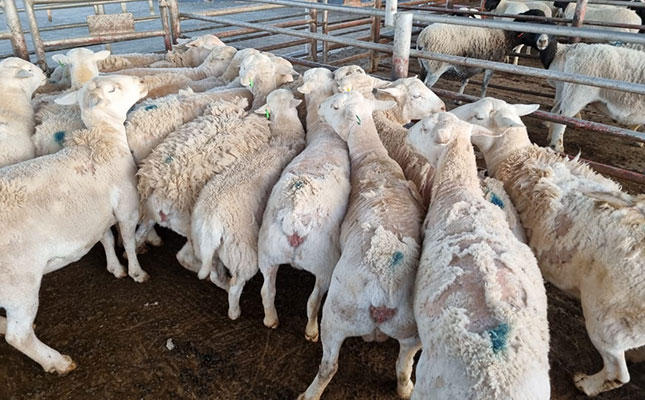
Photo: Northern Cape Red Meat Producers’ Organisation
At present, there were reports of outbreaks in the De Aar, Vosburg, Carnavon, Williston and Upington districts, with the farms where outbreaks occurred, as well as the adjoining farms, officially being placed under quarantine.
“Sheep scab is extremely contagious. It is of vital importance for all sheep producers in the province to implement strict biosecurity measures on their farms to prevent the disease from spreading.
“Strict access control and preventative measures are essential,” Julize Volschenk, operations official at the Northern Cape Red Meat Producers’ Organisation, (NCRPO) told Farmer’s Weekly.
According to her, it could be assumed that more than 1 000 sheep in the province had already been infected with the disease.
As a controlled disease, outbreaks were monitored by the Department of Veterinary Services in terms of South African legislation.
All cases of suspected outbreaks needed to be reported to the nearest state veterinarian. Should the tests conducted by the department confirm sheep scab, the flock would be quarantined for at least six weeks, she said.
Volschenk explained that the disease caused serious skin infections and loss of wool as the Psoroptes ovis mites that cause the disease burrowed through the skin to feed on the sheep’s lymph and tissue fluids.
The first sign of the disease was sheep biting themselves to relief the intense itching caused by mite activity. This was followed by the loss of wool or hair, and the appearance of wet and oozing spots on the skin.
She advised producers to ensure that workers changed their clothes and shoes when moving from one flock to the next to prevent them from transmitting the mites between flocks.
All vehicles entering and leaving the farm, as well as kraals and camps, also needed to be disinfected thoroughly, and the movement of people on the farm restricted.
All new animals introduced to a farm also needed to be kept in isolation for at least 28 days.
“This is a serious disease that could spell disaster for the Northern Cape’s sheep farmers.
“We need the co-operation of all role players in the sheep production value chain to prevent the disease from spreading further. Sheep scab is not a disease that should be trifled with,” Volschenk warned.












